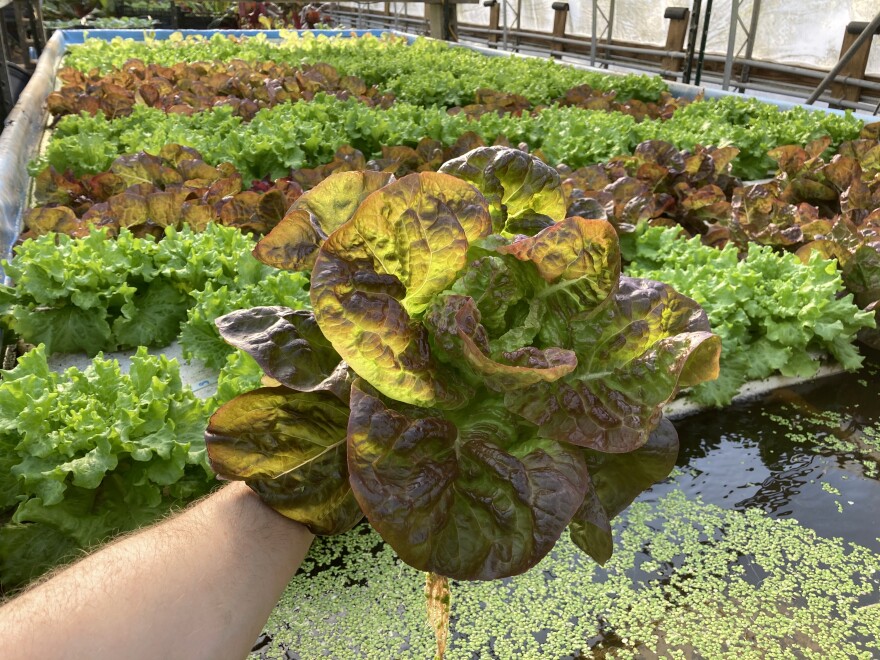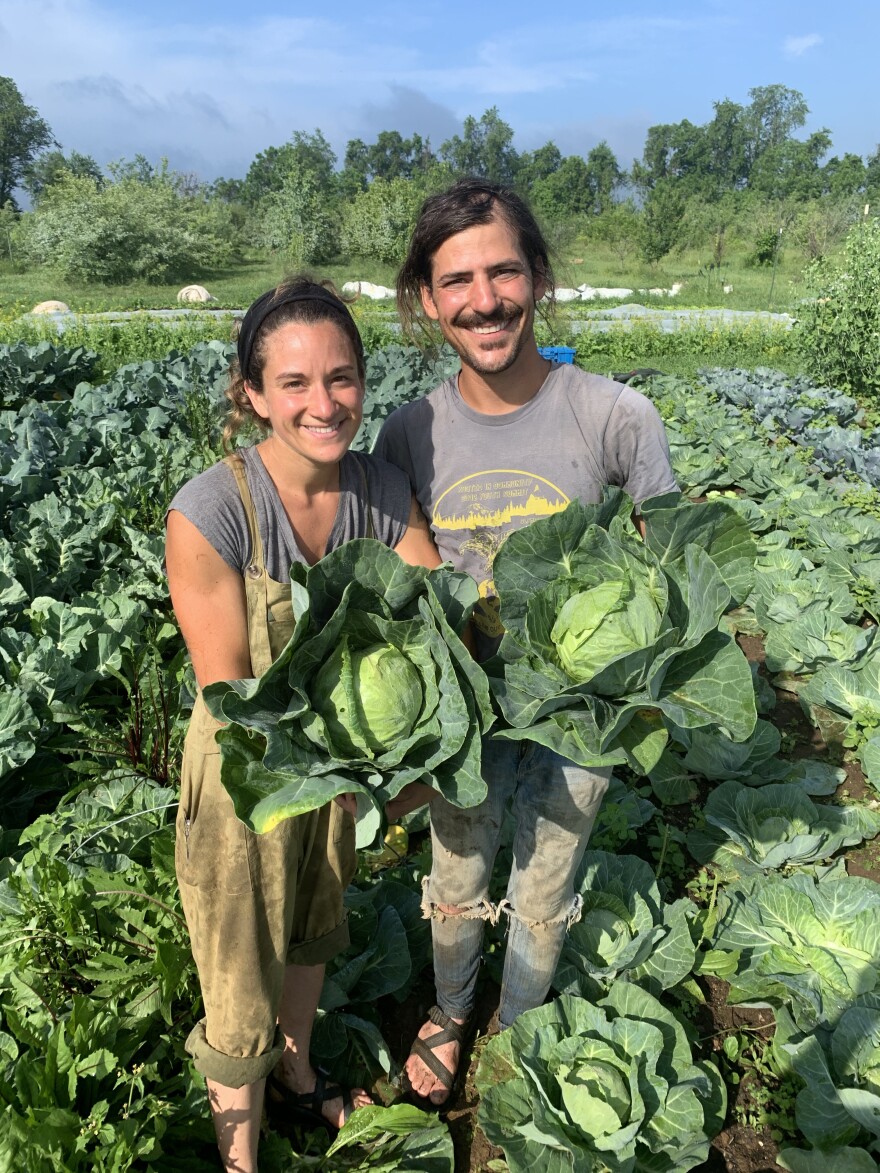EASTON, Pa – It might be cold outside but that doesn’t stop Easton's Winter Market 2023.
The outdoor farmers market returns this year with a record of 18 vendors. It runs every Saturday, from Jan. 14 to April 29 at 325 Northampton St.
- Easton’s Winter Market returns this year with a record of 18 vendors
- The market will run on Saturdays from 10:00 a.m. to 12:00 p.m. Jan. 14 - Apr. 29
- New vendors include an additional bakery, local distilleries and River Valley Community Grains
Easton Farmers' Market Director Megan McBride said that after 2022’s success in holding a market every Saturday of the season, the event is ready to take on more produce, baked goods and wares.
McBride said that a winter market can help farmers and entrepreneurs employ their staff throughout the entire year.
“It's difficult to build a brand and establish a solid customer base if your product is unavailable 5 months out of the year,” McBride said.
A bakery, new locally distilled spirits and prepared food options are joining the mix of vendors. In addition, River Valley Community Grains will be selling in Easton.
Seasonal winter vegetables like kale, spinach, cabbage, turnips, carrots, winter and squash will be featured at the market. These veggies can withstand cold temperatures and some can even survive in the snow.
The winter market is only open for two hours, from 10:00 a.m. to 12:00 p.m., which is shorter than the regular market days in warmer months. The event also doesn't include many outdoor or other kinds of activities, but organizers say the winter market’s location next to Easton Public Market provides an opportunity for attendees to warm up and do some additional shopping.
A glimpse at the vegetable farmers participating in the Easton Winter Market

AquaSprout Farms
AquaSprout Farms is owned and operated by twins Stephen and Keith Mitzak in Branchburg, New Jersey.
Keith Mitzak said he was temping at Bloomberg financial when he realized that career wasn’t right for him.
“That really wasn’t that interesting to me,” Mitzak chuckled.
While he was researching different companies and industries for Bloomberg, he said he came across a book about growing plants and raising fish for profit.
Mitzak said he and his brother learned a lot about aquaponics from reading, researching and even watching YouTube videos. In 2016, Mitzak and his brother found an old nursery where they built a greenhouse and the aquaponics system and launched AquaSprout Farms.
The aquaponics system uses a circulating system of water and fish to create a small ecosystem where plants grow.
“We try to mimic a natural ecosystem as closely as possible. We do it year-round; it's a sustainable form of agriculture,” Mitzak said.
Mitzak explained that aquaponics systems include live fish to fertilize the water used for growing vegetables. AquaSprout grows lettuce, microgreens, chard and other leafy green varieties because they have a quick production rate. Mitzak said they produce 35 to 55 heads of lettuce per day with their setup.
Mitzak said they use tilapia as their choice of fish and occasionally sell them, but they are not a fish farm. He said they keep the number of fish to a minimum, so as not to overwhelm the ecosystem.
A benefit of aquaponic farming, Mitzak said, is that it uses less soil than land farms, plus the water is filtered and recirculated, reducing water waste.
“From an environmental standpoint, aquaponics — you use less square footage, you use less water than your regular soil farmers. We don’t have any runoff. The only water that we lose is transpiration through the plant leaves,” Mitzak said.
Aquaponics farms also don’t require fertilizer, thanks to the fish and their waste excrement. In the winter, however, Mitzak said that greenhouses use more energy for heat and provide extra light for plants.
Cabbage Throw Farm

Cabbage Throw Farm is run by Dean Buttacavoli and Emily Stocker in Musconetcong River Valley, New Jersey.
The farm was founded by the pair in 2018. Buttacavoli was an environmental enthusiast and had been farming since 2011, when worked at an arboretum in Flagstaff, Arizona. He also worked at a nonprofit in Camden, New Jersey as an environmental and entrepreneurial youth educator and urban gardener.
Stocker comes from a culinary background. She was a restaurant manager in Philadelphia and assistant manager of the Highmark Farmstand in the Easton Public Market.
Stocker said they see farming through an environmental lens and think of their work as being a steward of the land, not just producing food. To that end, they employ no-till and shallow-till farming.
No-till and shallow-till farming are techniques for growing crops without disturbing the soil. Stocker said they use the top few inches of soil to plant quickly and it helps with weed management. This also helps the soil preserve its biology.
“It can be important for soil fertility as well as economic success for a small-scale farmer,” Stocker said. “Much of our influence came from veteran farmers, such as Bryan O'Hara, Elliot Coleman, and Jean-Martin Fortier.”
“We like to use winter markets as an avenue to keep a presence with our community and offer memberships for our CSA [Community Supported Agriculture] program.”Emily Stocker, a co-owner of Cabbage Throw Farm
Buttacavoli and Stocker don’t have winter infrastructure so they don’t farm much in the colder months. Their produce is also smaller than what you’d get in the summer. However, they sell storage crops like winter squash and root vegetables. Storage crops can be harvested in the fall and held for use in the winter.
“We like to use winter markets as an avenue to keep a presence with our community and offer memberships for our CSA [Community Supported Agriculture] program,” Stocker said.
Stocker said Claytonia, a winter salad green, and Tatsoi, Asian spinach, are her favorite winter crops.


